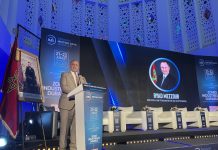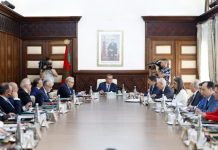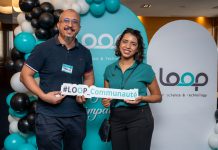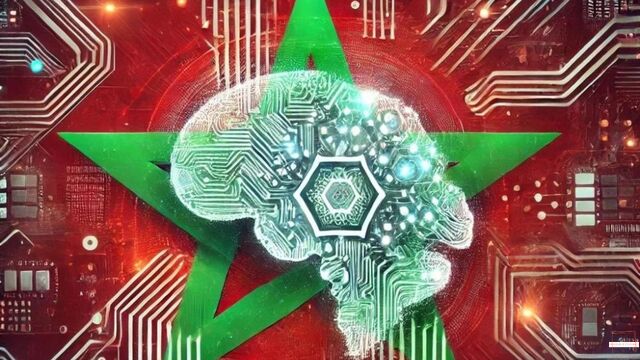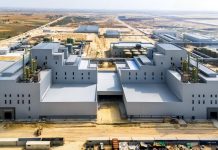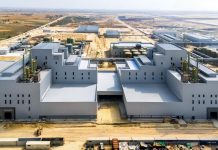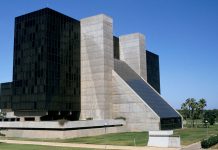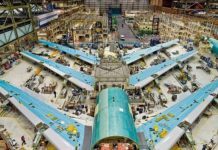Morocco is resolutely embracing the era of artificial intelligence (AI), leveraging it as a strategic driver for economic and social development. By integrating AI solutions into key sectors such as agriculture, healthcare, education, and infrastructure, Morocco is laying the groundwork for an ambitious digital transformation. However, this immense potential comes with significant challenges: talent development, infrastructure improvement, and the establishment of an appropriate regulatory framework. With strategic partnerships and a forward-looking vision, Morocco aspires to become a hub for AI in Africa.
AI as a Transformative Force
Artificial intelligence stands as a major technological revolution, reshaping economic, social, and cultural sectors worldwide. Against this global backdrop, Morocco, bolstered by its technological ambitions and strategic positioning, seeks to establish itself as a key player in the AI ecosystem. While the Kingdom has already made significant strides, numerous challenges and opportunities lie ahead.
A Firm Commitment to Innovation
Morocco has adopted a national strategy focused on digital innovation and artificial intelligence. This ambition aligns with the « Morocco Digital 2025 » initiative, aimed at positioning the Kingdom as a regional technology hub. The country is investing in innovative projects across agriculture, healthcare, education, and finance, incorporating AI-driven solutions to enhance performance and efficiency.
Concrete AI Initiatives
Several initiatives and projects highlight Morocco’s commitment to AI:
- Smart Agriculture: Morocco utilizes AI to optimize agricultural yields. Drones and sensors analyze soil conditions, detect crop diseases, and recommend tailored solutions. These technologies are modernizing a key sector of Morocco’s economy.
- Connected Healthcare: Moroccan hospitals are beginning to integrate AI systems for medical diagnostics. For instance, AI-powered applications can detect diseases like diabetes or certain cancers through medical imaging.
- Education: Personalized digital platforms using machine learning adapt to each student’s pace, helping to reduce regional disparities in access to quality education.
- Smart Cities: Projects like the Smart City of Benguérir and the technological development of Casablanca aim to integrate AI into urban infrastructure management, transportation, and energy systems.
Strategic Partnerships
Morocco actively collaborates with international players to strengthen its AI capabilities. Partnerships with global tech companies like Huawei, IBM, and Google, as well as academic institutions, facilitate knowledge transfer and the training of a new generation of talent.
Moreover, South-South cooperation, particularly with other African nations, enables Morocco to share its expertise while positioning itself as a regional leader.
Immense Potential to Harness
AI offers Morocco exceptional opportunities to accelerate its economic and social development:
- Industrial Transformation: Integrating AI into industries such as automotive and aerospace will enhance productivity and boost Morocco’s international competitiveness.
- Financial Inclusion: AI solutions can improve access to banking services for rural and unbanked populations. AI-driven fintech provides personalized, accessible services via smartphones.
- Personalized Tourism: By analyzing visitor data, AI can offer tailored experiences, increasing Morocco’s appeal as a tourist destination.
Challenges to Overcome
Despite its progress, Morocco faces several challenges in maximizing AI’s benefits:
- Training and Skills Development: AI requires a qualified workforce. Morocco must invest heavily in training local talent by integrating AI into university curricula and expanding professional training initiatives.
- Digital Infrastructure: Access to reliable, high-speed internet is crucial for deploying AI solutions, particularly in rural areas.
- Regulatory Framework: Morocco needs clear laws to regulate AI use, protect personal data, and ensure ethical technology practices.
- Investments: To compete with advanced nations, Morocco must attract more investment in tech startups and AI projects.
The Role of the State and Businesses
The Moroccan government plays a central role in promoting AI by fostering an innovation-friendly environment. This includes tax incentives for companies investing in AI, the creation of tech free zones, and support for startup incubators.
Moroccan corporations, especially in banking, energy, and logistics, must also integrate AI into their strategies to remain competitive.
AI as a Lever for Sustainable Development
AI can serve as a catalyst for achieving Morocco’s sustainable development goals:
- Combating Climate Change: AI systems optimize resource use, monitor ecosystems, and predict natural disasters.
- Reducing Inequalities: By automating tasks and facilitating access to essential services, AI can improve living conditions for vulnerable populations.
- Energy Transition: AI can maximize the efficiency of renewable energy sources, a field where Morocco is already a leader in Africa with projects like Noor Ouarzazate.
A Bold Future: Becoming Africa’s AI Hub
Morocco aims to become a center of excellence in AI for Africa. By leveraging its infrastructure, geographic location, and political stability, the Kingdom can attract international talent and investments.
Initiatives like the Mohammed VI Tangier Tech City exemplify this vision. By creating a technological ecosystem that brings together local and foreign companies, Morocco can accelerate its digital transition and serve as a model for other emerging nations.
Turning Vision into Reality
Artificial intelligence represents a historic opportunity for Morocco to turn its challenges into development drivers. Through bold strategies, international partnerships, and strong commitments to education and innovation, the Kingdom can establish itself as a major AI player.
However, this ambition requires collective mobilization from all stakeholders—government, businesses, researchers, and civil society. If these efforts converge, Morocco can not only meet the expectations of its citizens but also play a key role in the digital transformation of Africa and the world.




